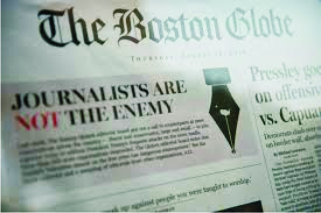NEUTRALITY is often defined as the ability to remain uninvolved, to not take a side, and to view situations dispassionately. It suggests that a person can be an impartial observer, capable of making clear, unbiased judgements.

But is it truly possible for a thinking, feeling adult to remain detached while their society drifts into uncertainty and to do nothing to influence the tide?
This question is especially difficult in a country like Nigeria, where political actors are often perceived as lacking the capacity to lead. The responsibility of reporting on this society falls to the journalist, who is ethically bound to be fair to all sides and present every point of view. Yet, therein lies a significant dilemma: how can one remain a neutral observer while also being a committed member of the very society they report on?
The answer to whether a journalist can be truly neutral is both “yes” and “no.”
Yes, because journalistic ethics demand that professionals set aside personal opinions and report only the facts and viewpoints of newsmakers. A journalist is trained to be an objective conduit for information, regardless of personal beliefs.
No, because a journalist is also an integral part of their society. They cannot stand idly by and watch their community suffer or decline without feeling a moral obligation to act. To do so would be to betray their role as public watchdogs. A journalist who fails to highlight societal problems when they have the platform and the power risks being judged harshly by history.
This is the central conflict for every journalist. He or she is caught between the professional mandate to report objectively and the moral imperative to contribute to society’s well-being. They must report on events and people they may not personally believe in, all while facing potential backlash if their reporting is perceived as biased.
The 2023 elections in Nigeria tested this dilemma, as many journalists became publicists for political candidates. While this in itself is not inherently wrong (after all, someone must take up the role), it blurs the line between reporting and advocacy.
The more pressing question is whether journalists can truly meet the needs of a society striving to grow. It is less about theory and more about moral integrity. Can the media be trusted to be a voice for the people? Do journalists hold the moral high ground to challenge society and guide it toward truth, justice and fairness? This is a heavy burden. But it is what the public rightfully expects from the press.
Today, however, the challenge has deepened. Many who act as publicists now call themselves journalists, misrepresenting the profession. The rise of online platforms run by single individuals who are acting as their own reporters, editors, and gatekeepers has worsened the problem. With no oversight, these platforms often publish unchecked information, including misinformation and outright lies.
When such publicists, driven by personal agendas, own these blogs, society edges closer to a point where a neutral, objective perspective becomes almost impossible to find.
Fake news has become pervasive. When a single person controls the content pipeline from creation to publication, neutrality is the first casualty. We see this in the media today, where bias and partisanship dominate. The owner’s perspective often dictates what is published, thus depriving the public of a balanced view.
The current state of the media, which is rife with divisive content and hate speech, is deeply troubling. Charlatans have infiltrated the media space, doing grave damage to what was once a highly respected profession. Visit any number of these sites, and you will see how they exploit our societal fault lines, actively promoting division and conflict.
It is easy to focus on the failings of leaders and feel helpless, but the responsibility to act does not rest solely with them. As a people, Nigerians have the power to reclaim their heritage and demand better. The time for change is now. Collectively, society must decide to alter the narrative and take action to steer the country toward a healthier, more unified future.



